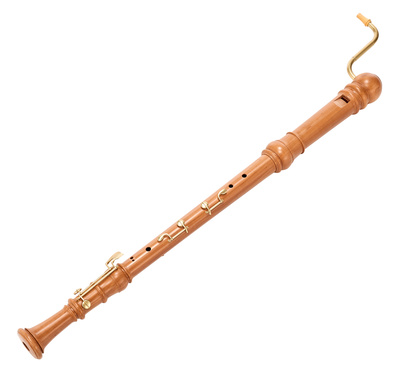Yes - I love the bass recorder sound. The tenor is ‘not quite there’, although as a descant C player, it is more intuitive to switch to tenor, to save transposing music. The bass recorder plays in the key of F, so you have to learn the bass clef notation (not a lot of work though).
I’m not surprised you’re enthralled by the 4119. Mollenhauer’s ‘sound’ is very distinctive. If you move back to another wooden recorder brand, you might struggle to like it as much. And yes - plastic is forever, but for recorders, it’s more for outdoor and learning fun, whereas a proper wooden recorder is for the quality playing moments.
The large finger-holes on this recorder I am finding so useful for performing pitch bends. I can slightly lift one of my fingers up off the hole and get a wonderful bend! If this is a normal technique I’m not sure, but I keep doing it all the time on this thing.. It sounds incredible and is extremely easy to do.
There are many ways to do pitch bends on woodwind instruments. The easiest method, is to ‘slide’ a finger off a note, to bend it up, or to slide a finger onto a note, to bend it down. The sliding itself, alters the pitch. On a recorder, there aren’t many options other than finger sliding. If you’re into Irish music, then you will need to master sliding, as well as other forms of ornamentation; trilling a note up, and then down, around a note, for emphasis etc.
I’m following Mr. Lazar’s method for breaking in wooden recorders, which limits you to a maximum of 15 minutes of play time per day on the first week. I have to force my self to stop playing it, but I know in the long run it is what’s best.
You’re so disciplined 
I do have some questions about care however.. When applying cork grease, I am just putting a very small amount around the whole cork. It is so little that you can’t really see much of it on there, but you can surely feel it. The head joint goes on nice and smoothly, with just a gentle amount of force, however taking it off requires a little more, but not an incredible amount of force. Is this normal, or should I be applying a bit more grease?
The moisture will act as a ‘glue’, if there is insufficent cork grease. You’ll find this even on ABS plastic recorders. If you are applying much force just to rotate off the recorder joint, then you need to make sure you definitely ‘rotate’, rather than pull, otherwise you’ll risk a stress fracture. Cork is easily replaced, but it makes sense to add more grease so that it’s a smooth sliding joint.
You probably know, that it’s okay to have moisture in wood instruments; as long as you aren’t exposing the instrument to rapid or sudden changes in humidity, it will be fine. Maybe use weakened linseed oil once every month to lubricate the inside, with a rag, to make sure that it isn’t at risk of fracturing. That way, your recorder should last at least a decade with regular playing.
I still use my ABS recorders - they are great for picking up and practicing, without needing much care. They are easier to use and abuse, and require less care - that’s why I decided to get a cheap plastic bass recorder, after my wooden one cracked. I wasn’t caring for my bass recorder as you’ve started off doing for your recorder, so hopefully you’ll be spared the pain of having to replace yours in 10 years like me 
